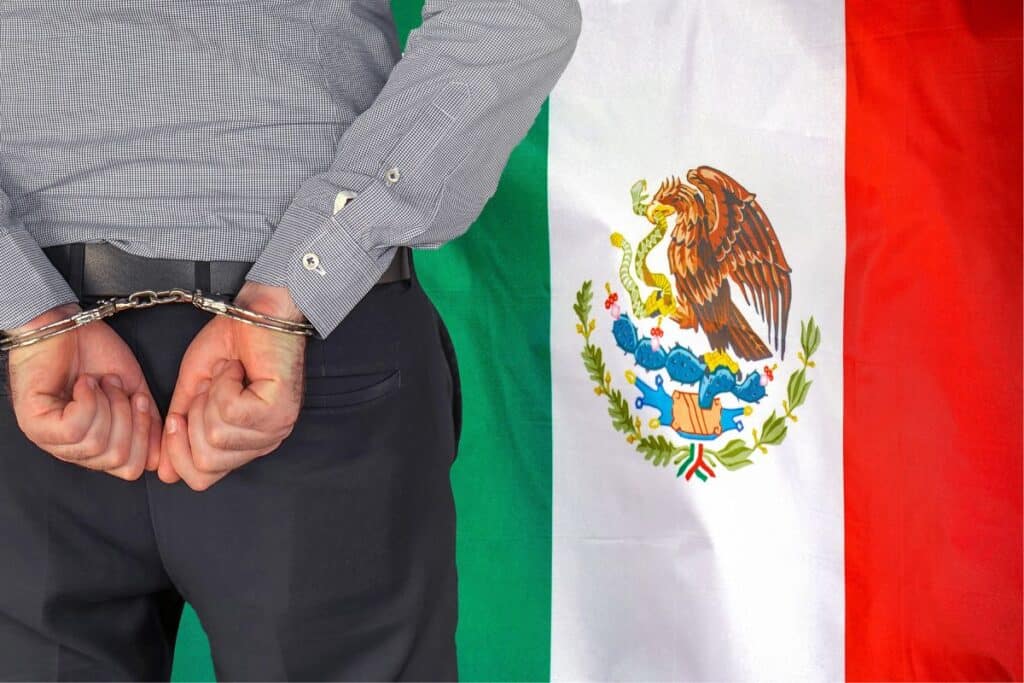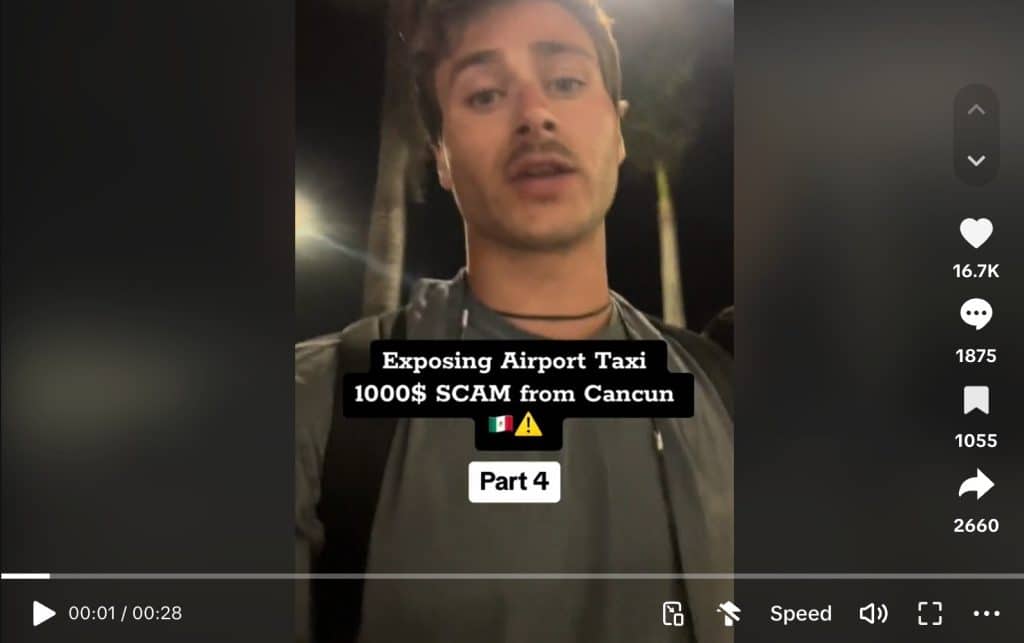Cancun Uber Drivers Halt Operations Over Fear of ‘National Guard Mafia’
3 min readTourists arriving at Cancun International Airport (CUN) are now at the mercy of “mafias” operating in and out of this transportation hub. This follows Uber drivers suspending operations after a series of attacks on themselves and their passengers—the tourists visiting the Mexican Caribbean. First, you must know that ordering an Uber, Didi, or Cabify at this airport is no longer illegal. In August 2024, the Eighth District Court ruled in favor of Uber drivers, declaring that restrictions on ride-sharing services […]
The post Cancun Uber Drivers Halt Operations Over Fear of ‘National Guard Mafia’ appeared first on Traveling Lifestyle.
Tourists arriving at Cancun International Airport (CUN) are now at the mercy of “mafias” operating in and out of this transportation hub. This follows Uber drivers suspending operations after a series of attacks on themselves and their passengers—the tourists visiting the Mexican Caribbean.
First, you must know that ordering an Uber, Didi, or Cabify at this airport is no longer illegal.
In August 2024, the Eighth District Court ruled in favor of Uber drivers, declaring that restrictions on ride-sharing services at CUN openly violated the constitutional right to free transit.
“The court ruling, effective from Aug. 15, 2024, means that Uber drivers no longer need special permissions to operate in airport areas. This decision removes previous obstacles and allows Uber to compete directly with traditional taxi services,” says the official website.
Well, traditional taxi drivers and members of the National Guard agree to disagree.
Even after the court ruling, taxi drivers continue to claim that allowing Uber and other ride-sharing platforms to operate violates federal laws. Unfortunately, the National Guard has been seen siding with taxi unions, acting against Uber drivers and tourists.
A couple of weeks ago, three tourists were harassed, photographed and filmed after taxi drivers called the National Guard to have them arrested for ordering an Uber instead of choosing their frequent abusive fees and poor taxi service.
When one of the women argued that she was free to choose the service “she felt it was safest,” police officers placed her in an official vehicle and attempted to take her to the police station.
An Uber driver who identifies as Antonio M. warns that while legal protection is crucial, “the amparo (legal injunction or protection for Americans) won’t protect you from being attacked by [traditional] taxi drivers, the site mafias, or even the National Guard mafia at the airport. No matter how much legal protection you have.”
So, why do Uber drivers claim that the National Guard might be involved in any illegal activities at CUN? According to an April report inked by Alejandro García from Quequi News, National Guard members were allegedly colluding with local politicians to commit crimes at the airport. At the time, these crimes would primarily involve illegal taxi ownership and scams.
“Irregular operators are underhanded and even protected by members of the corporation [the National Guard] since it’s an open secret that many of these units [illegal taxis] are owned by officials and local politicians,” García stated back in the day.
The other “mafia” this taxi driver refers to consists of traditional taxi drivers, who have been involved in numerous physical attacks on Uber drivers and tourists, vandalism of their vehicles, and, of course, infamous scams.
In April, a scam targeting a Canadian tourist went viral on TikTok when a traditional taxi driver charged him over $1,000 to transport him from Terminal 4 to Terminal 3. What made this scam particularly alarming was the involvement of two airport officials.
Thus, despite the court ruling, Imoveqroo, Quintana Roo’s Mobility Institute—the government agency responsible for managing and regulating transportation services across the state—has faced criticism for allegedly targeting ride-sharing apps like Uber.
Commenting on the situation, the Uber driver said, “Imoveqroo continues to carry out operations at Cancún International Airport—you can’t intervene because the National Guard is still conducting operations. Basically, no official announcement clarifies whether you can or cannot work, whether it’s legal or illegal.
Let’s clarify that. It is legal. As a tourist, you have the right to order an Uber without being targeted by police or harassed by traditional taxi drivers.
“What we’re waiting for is for Uber to issue an official statement about the amparo and confirm whether they will take responsibility for potential issues, such as fines and detention costs imposed by Imoveqroo, which can reach 50,000 pesos (about $2,446 USD). On top of that, there are towing fees,” said Antonio M., adding that Uber drivers risk having their vehicles impounded for up to 15 days.





